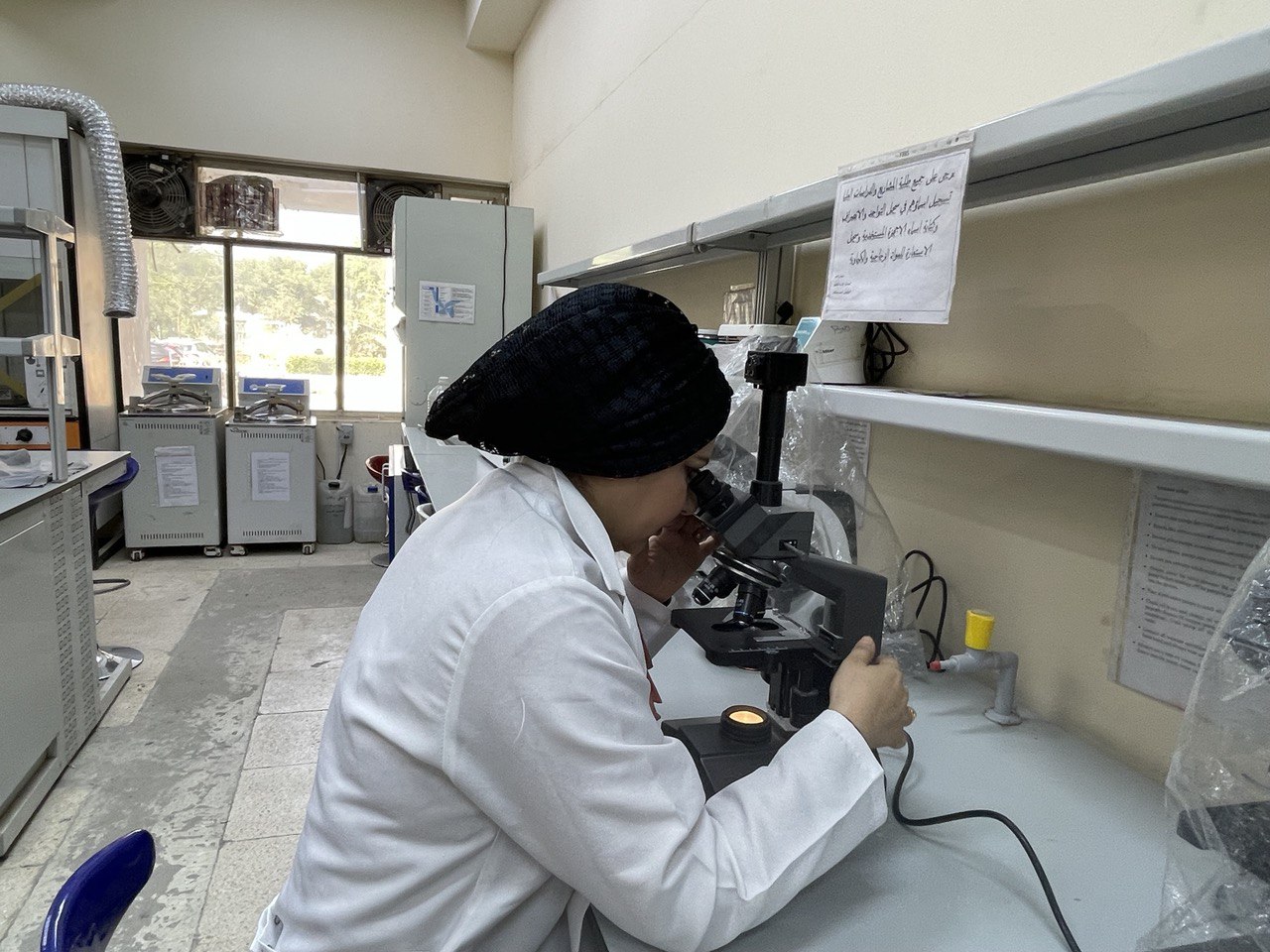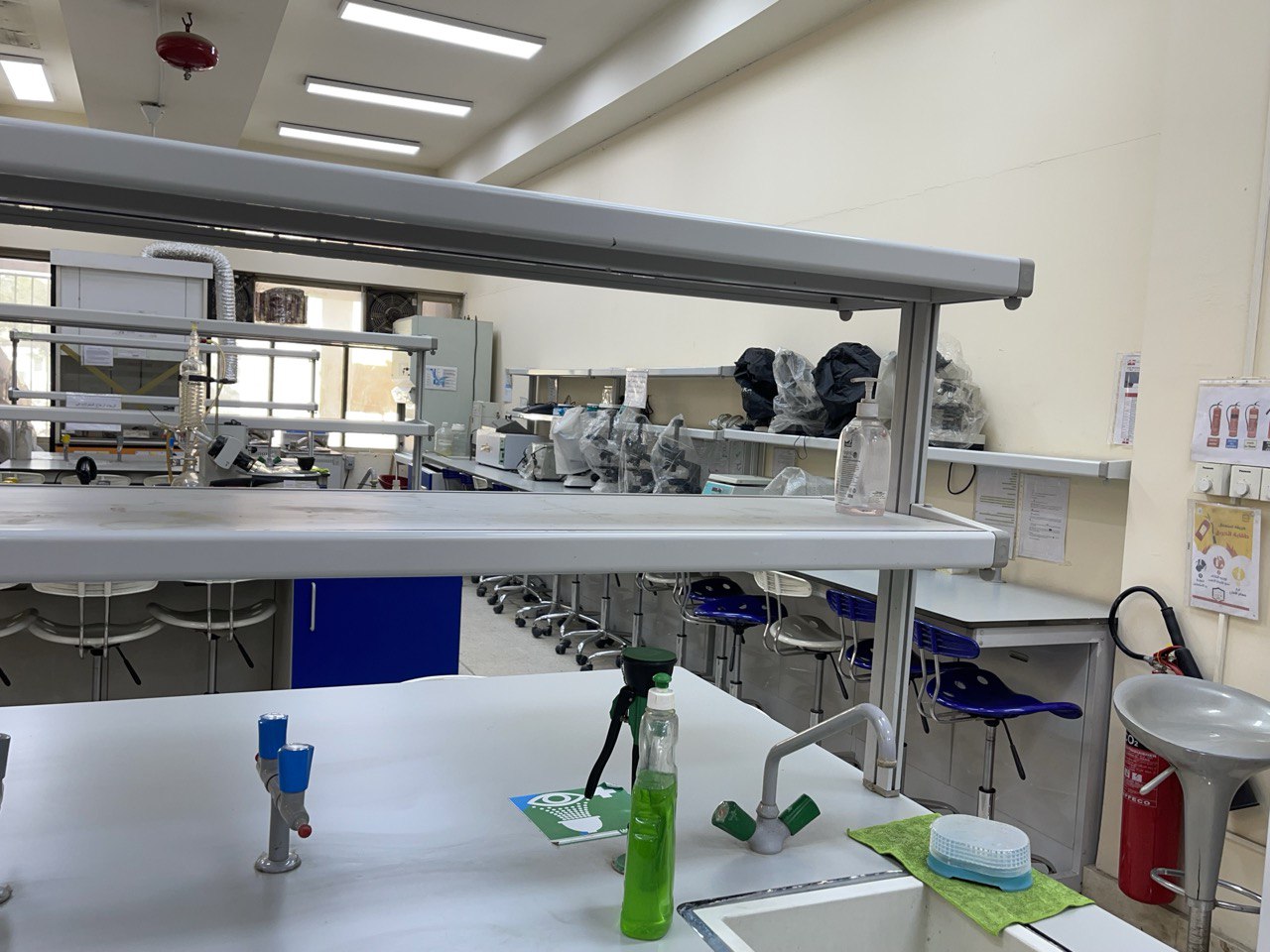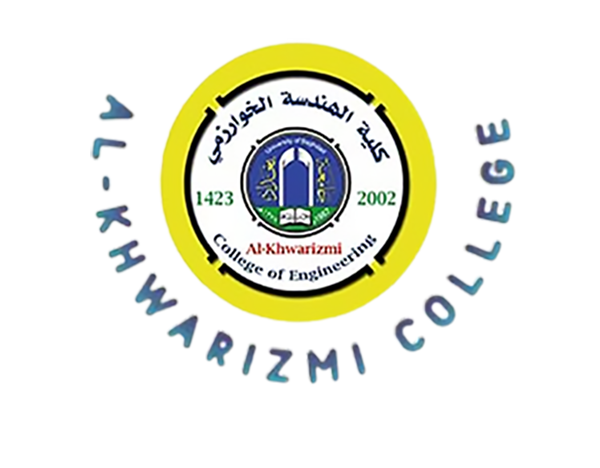The Biochemical Laboratory
The Biological Laboratory is one of the four labs in the Department of Biochemical Engineering at Al-khwarizmi College, University of Baghdad. Undergraduate students’ study about three hours/week for a semester (15 weeks). The main purpose of this laboratory is to train and teach students how chemical and biological experiments are conducted in the field of biochemical engineering. Laboratory activities include: lectures, class discussions, assignments, presentations, experiments, lab reports, quizzes, and projects. As well as prepares stained smears, culturing micro-organisms, conducting industry experiments, performing tests to identify bacteria and fungi, and studying microbial growth control methods. On the other hand, the techniques that are used in this lab: microscope usage/function, streak plate technique, preparation technique of chemical compounds and Gram stain technique.The other activities for this lab are: introducing the basic techniques and procedures that used by microbiologists as handling microbes, methods of identification and quantification of microorganisms, aseptic techniques, isolation of a single colony, and preparation and examination of stained slides. The student will also receive training in data analysis, scientific reasoning, and scientific writing.
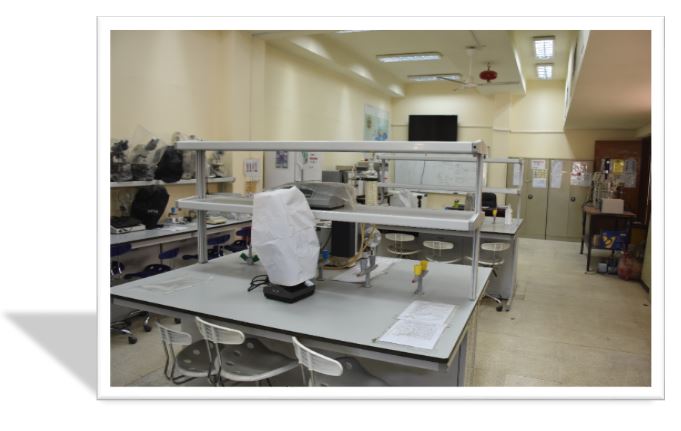
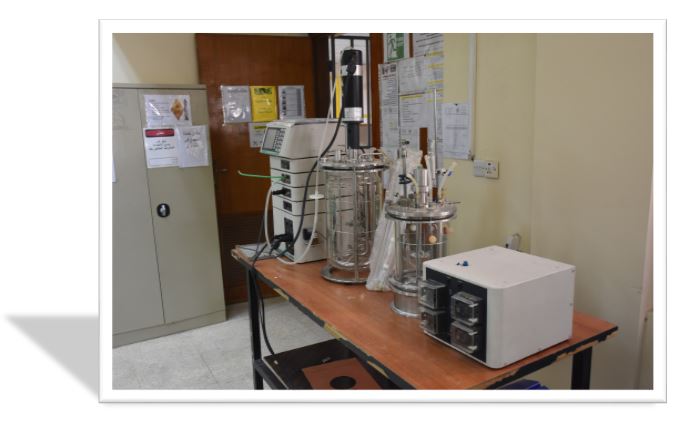
The Biochemical Laboratory
The microbiology Laboratory is one of the four labs in the Department of Biochemical Engineering, Al-Khwarizmi College, University of Baghdad. Undergraduate students’ study about three hours/week for a semester (15 weeks).The main target of this laboratory is to assist in the biological and chemical experiment in field of biochemical engineering. Laboratory activities are including lecture format, class discussion, assignments, presentations, experiments, lab reports, quizzes, and projects. As well as preparing stained smears, culturing micro-organisms, conducting industry experiments, performing tests to identify bacteria and fungi, and studying microbial growth control methods.Techniques using Lab are including: microscope usage/function, streak plate technique, preparation technique of chemical compounds, Gram stain technique, and use of scientific method. In addition, use of the scientific method to write laboratory report are learning to students. The course consists of a laboratory component that introduces the student to basic techniques and procedures used by microbiologists such as handling microbes, methods of identification and quantification of microorganisms, aseptic techniques, isolation of a single colony, and preparation and examination of stained slides. The student will also receive training in data analysis, scientific reasoning, and scientific writing.
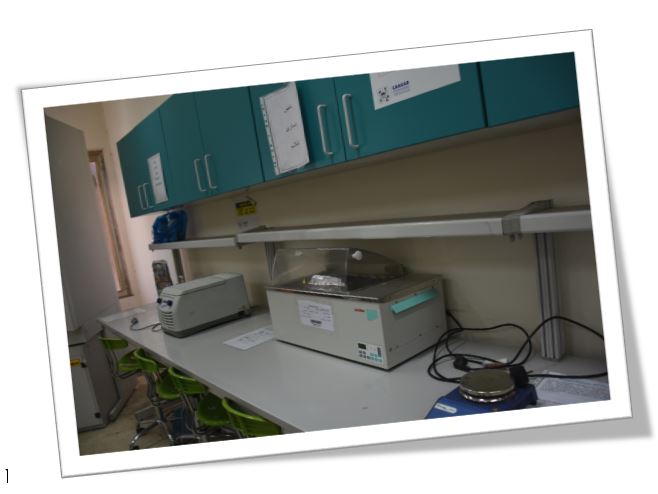

Computer Lab MISSION
Technology is used to help the students to prepare a variety of skills: increasing learning potential, creativity, problem-solving, collaboration, improve the student’s motivation as well as attitude. Creative thinking are all necessary skills for the future and technology is just one part of that equation. Technology offers for the students the chance to learn different subjects outside the classroom. In addition, it allows for enhanced understanding the subjects they are already learning. VisionThe main purpose of this laboratory is to create highly competent technical engineers that are able to meet the local labor market in the field of design, simulation as well as computation using various software engineering programs.
GoalsThe main goal, of the computer Lab, is to enhance the educational by learning the students, through the four years of their studies, the modern engineering applications and software fundamentals. Undergraduate students’ study about two to four hours per week, in the one semester, in order to train students to face advanced engineering problems in all scientific horizons as well as to open new prospects for progress in in the field of biochemical engineering.
For the first stage: Students are trained how to use software including Excel where various applications are solved for specific problems related to both chemical and biochemical such as transport phenomena, heat, fluids and mass, as well as balance principles of both mass and energy. On the other hand, Excel is applied to learn how to solve the equations of chemical and biochemical reactions with thermodynamic and dynamic industrial reactions and processes induced enzymes, yeasts or fungi is applied. In addition, Excel is used to estimate the biomass which effectively contributes to the approach to the community’s food and medicine approaches.In the second phase, students begin to practice using the MATLAB program (mathematical simulation) which is used to solve simple and advanced differential equations. This program gives accurate scientific results that are employed in scientific research experiments to reduce the line rates and thus reduce the cost of food and pharmaceutical industries and processes. In addition, they are used in other scientific fields, including mass transport and heat.Moreover, the students, in the final graduation stages, were taught using advanced design software including Aspen, Hysysand SuperPro Designer as followed by the global universities for simulation the units of the chemical and biochemical industries. Aspen HYSYS and SuperPro Designer are software programs which used process modeling tool for conceptual design, optimization, business planning, asset management, and performance monitoring. Due to their accuracy. They are widely used in industries such as oil and gas production, gas processing, petroleum refining, air separation industries, fermentation and separation process. Some of the intuitive capabilities include a highly interactive process flow diagram for building and navigating through large simulations. The programs also provide a very flexible and easy to use distillation column modelling environment. Additionally, the interactive nature of HYSYS superpro designer enables users to build and use their models quickly and effectively. These software offers a comprehensive thermodynamics foundation for accurate calculation of physical properties, transport properties, and phase behavior for the oil & gas and refining industries. A computer simulation is an attempt to model a real-life or hypothetical situation on a computer so that it can be studied to see how the system works. There are two modes of simulation: steady state and Dynamic mode.Steady State Mode: Initially process simulation was used to simulate steady state processes. Steady state models perform a mass and energy balance of a stationary process (a Process in an equilibrium state) but any changes over time had to be ignored.Dynamics Mode: Dynamic simulations require increased calculation time and are mathematically more complex than a steady state simulation. It can be seen as a multiply repeated steady state simulation (based on a fixed time step) with constantly changing parameters.
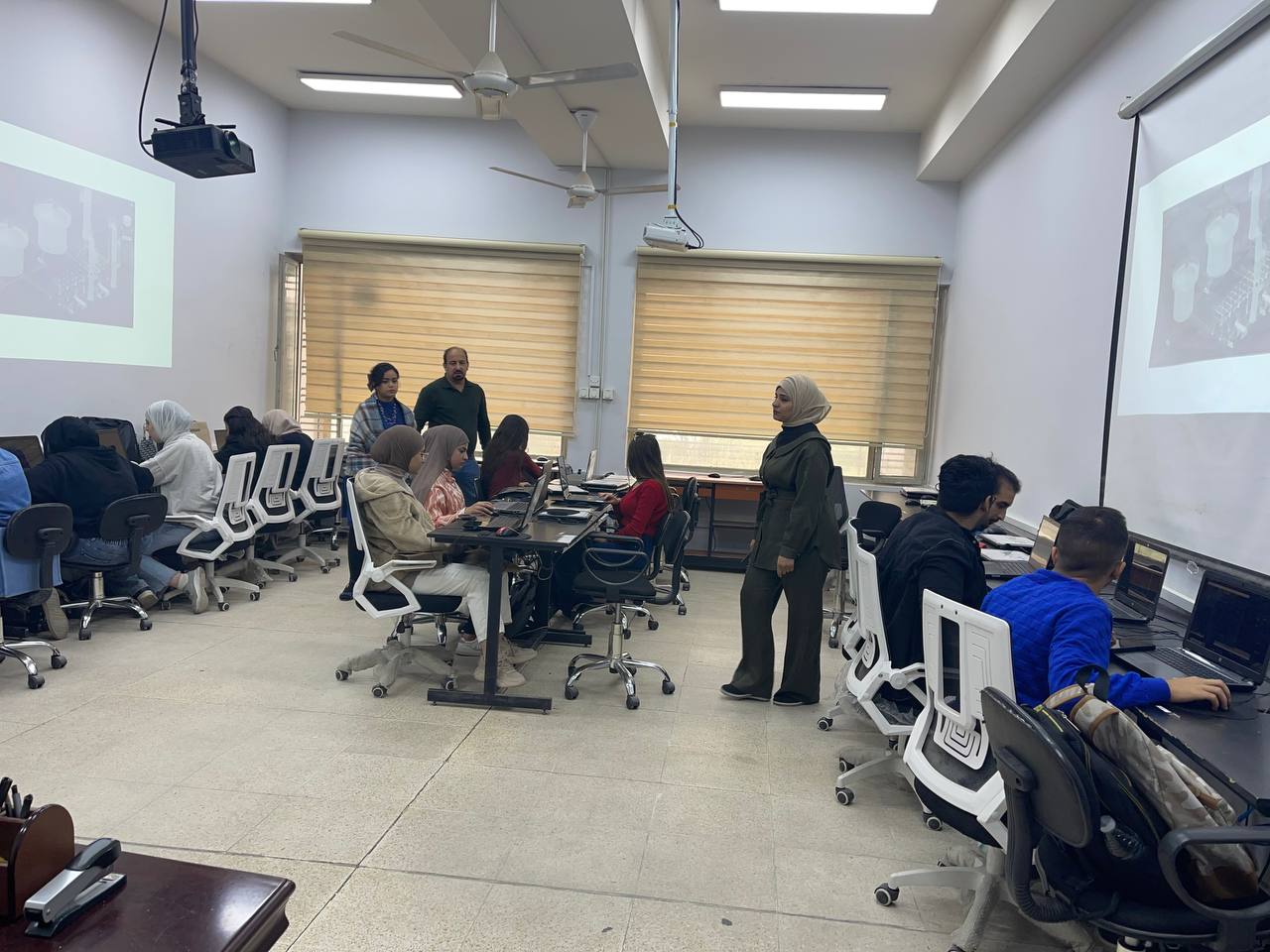
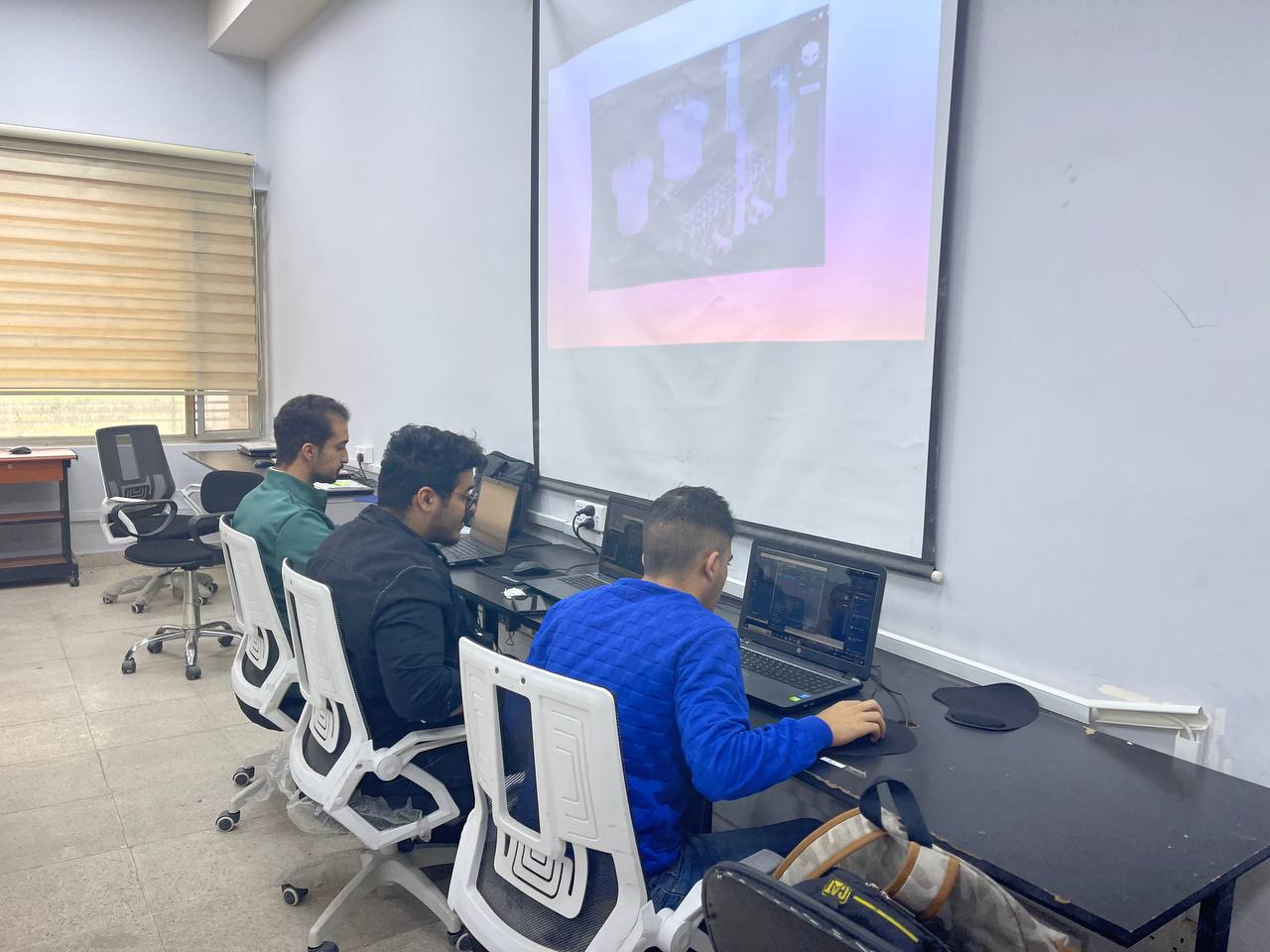
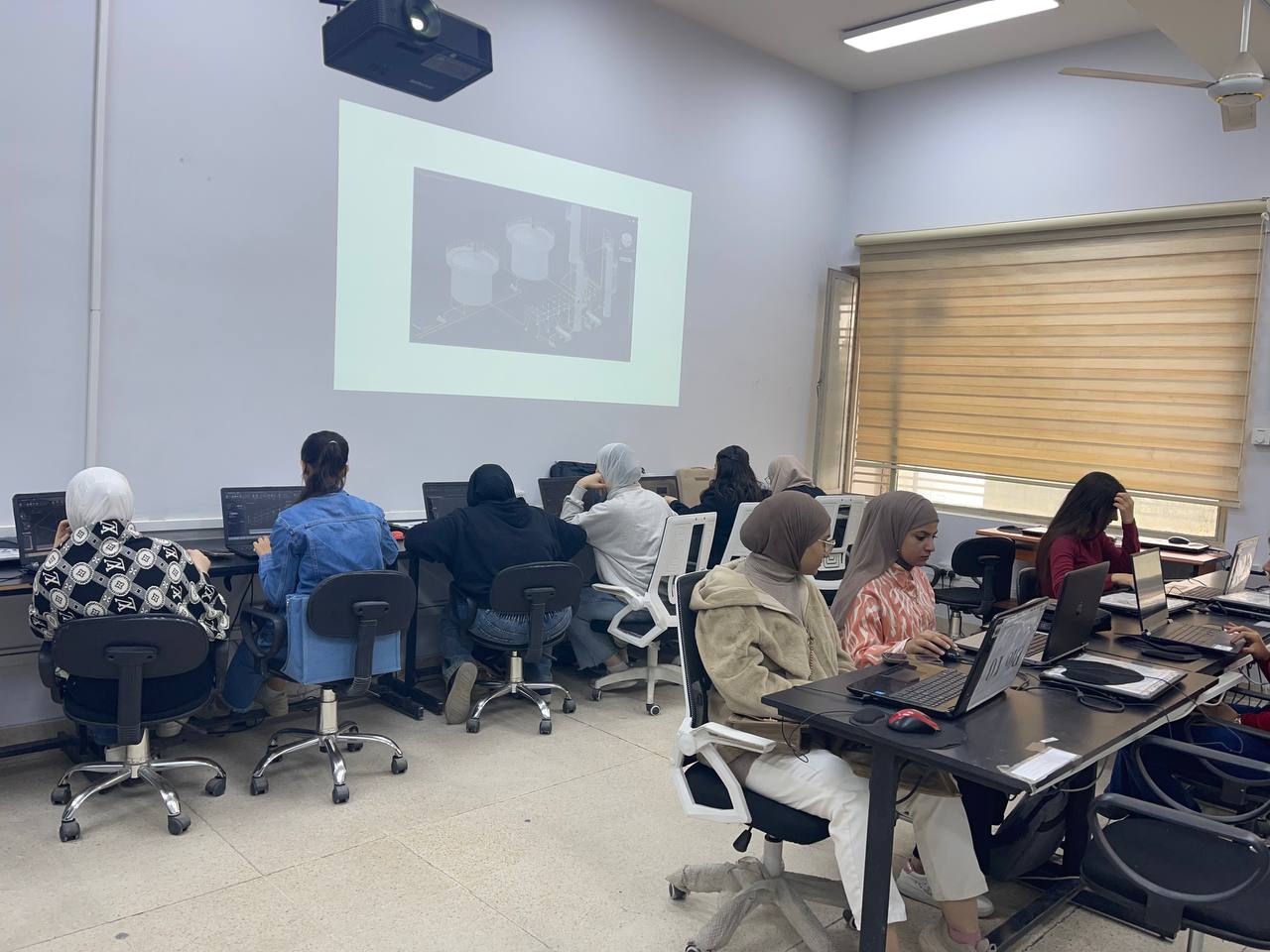
Physical Analytical and Organic Chemistry Lab.
The mission
Physics Analytical and Organic Chemistry Lab Lab is one of the most important scientific laboratories in the Department of Biochemical Engineering where students learn to study molecular structure and its relationship to chemical reactions along with biophysical properties and biological activity of organic compounds.
The main goals of this laboratory is to educate students so that they are ready to enter the chemical industry and other areas related to chemical that are able to be responsible and successful leaders in the field of their choice.
Vision
To understand the physical properties of atoms and molecules the way chemical reactions work and what these properties produce. These results help them understand the chemical properties and describe the behavior of these molecules using physics and mathematical calculations. The development and construction of such system in the scientific laboratory contribute mainly to the development of future development steps and clear goals and vision and dimensions
Laboratory objectives
1-providing specialized devices and personnel for laboratory tests for post graduate students
2-preparation of laboratory conditions for the materials of the experimental materials. practical experiments for students of preliminary studies of specialized materials in physical chemistry, organic chemistry and supervision of experiments by specialized laboratory owners.
